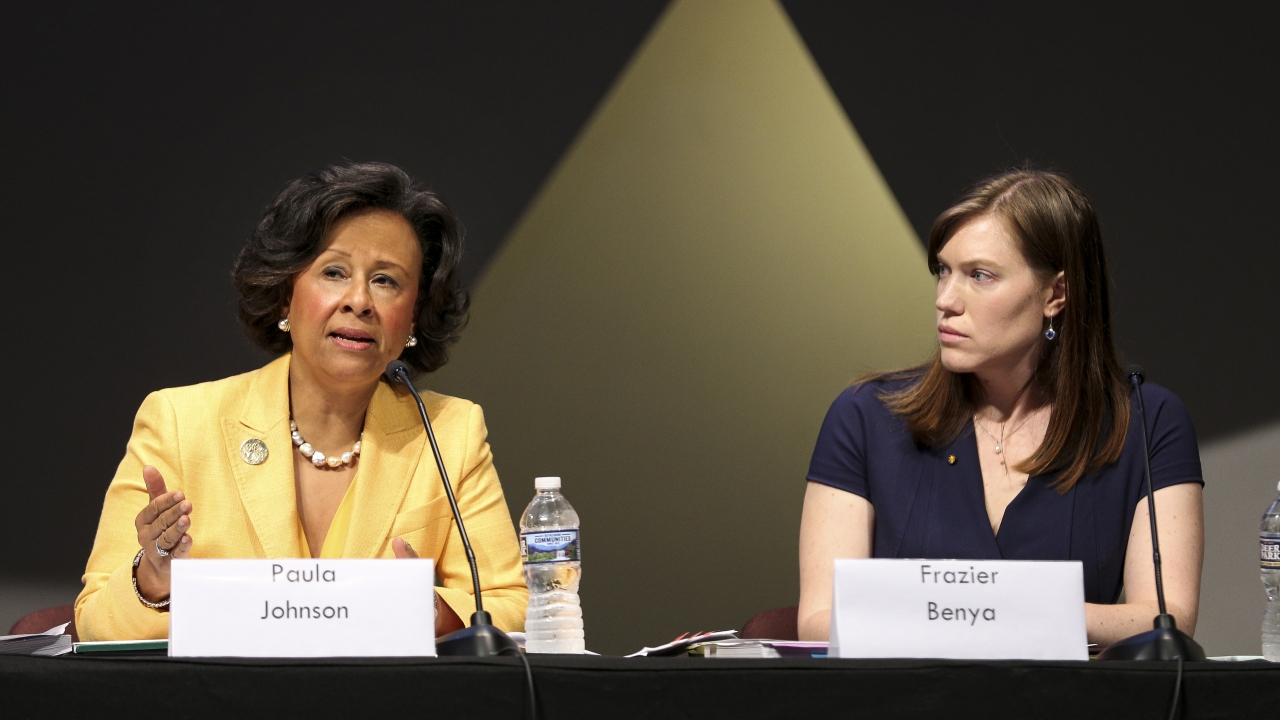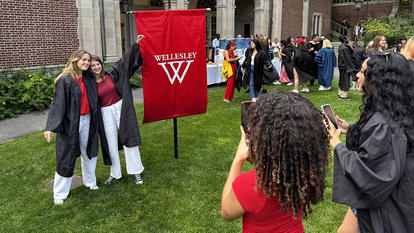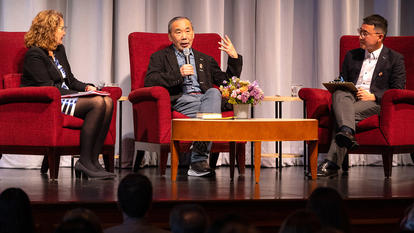Groundbreaking Report on Sexual Harassment of Women in STEM Urges Higher Ed to Work Harder to Change Culture, Climate

Colleges and universities, along with federal agencies, should move beyond basic legal compliance and adopt stronger evidence-based policies and practices to address sexual harassment in STEM fields, according to Sexual Harassment of Women: Climate, Culture, and Consequences in Academic Sciences, Engineering, and Medicine, a groundbreaking report just released by the National Academies of Sciences, Engineering, and Medicine (NASEM). Wellesley College President Paula A. Johnson is co-chair of the committee that conducted the study and wrote the report.
The committee’s findings, published as the #MeToo movement continues to inspire a national dialogue, offer a comprehensive review of the research about and the experiences and effects of sexual harassment on women and their careers in STEM fields. The cumulative result of all types of harassment, including gender harassment, is significant damage to research integrity and a costly loss of talent in these academic fields. “If we are losing talent in science, engineering and medicine, then that is something that is detrimental to our country and quite frankly to the world,” Johnson told the Associated Press.
The report noted that sexual harassment “often occurs in an environment of generalized incivility and disrespect.” An organization’s workplace climate was found to be one of the greatest predictors of the occurrence of sexual harassment. “Therefore, changing the organizational climate can prevent people from sexually harassing others,” said Johnson during a June 12 news conference about the report at the NASEM building in Washington. “A person who is more likely to engage in harassing behaviors is significantly less likely to do so in an environment that does not support harassing behaviors, and has a strong, clear set of transparent consequences for these behaviors.”
At the news conference, Johnson summarized recommendations presented in the study. For example, academic institutions need “to create diverse, inclusive, and respectful environments. Academic institutions and their leaders should take explicit steps to achieve greater gender and racial equity in hiring and promotions, and as a result improve the representation of women at every level,” Johnson said.
STAT, a national publication that covers health and medicine, reported that Johnson and her co-authors believe “it’s critical for colleges to do more than just comply with the laws such as Title IX and Title VII, which have led to policies and procedures that might protects universities but don’t do much to stop harassment.”
“We really have to move beyond a mind-set of legal compliance and liability and think about the ways we can change the climate,” Johnson told the New York Times.
She also said during the event...“institutions should develop approaches to prevent the target from experiencing or fearing retaliation in academic settings.”
A number of national media outlets highlighted the report’s sweeping significance, including the New York Times, Washington Post, PBS Newhour, Chronicle of Higher Education, and Science Magazine among others.
The committee set out in 2016 to find the extent to which women in STEM experience sexual harassment, from the perspective of students, post-docs, trainees, and faculty; review how sexual harassment affects women’s careers; and examine the policies and practices that have been most effective in preventing and addressing sexual harassment. The long-term goal of this independent committee is to increase the participation of women in science and engineering and recommend ways to enhance women’s advancement in these fields.
Wellesley fully supports this mission. The College has a long tradition of preparing future leaders in the sciences, with alumnae awarded more doctorates in science and engineering than female graduates of other liberal arts colleges in the nation. In addition, 54 percent of all science faculty at Wellesley are women.
The study was sponsored by the National Science Foundation, NASA, the National Institutes of Health, the National Institute of Standards and Technology, and the National Oceanic and Atmospheric Administration, among other public and private organizations.
While NASEM commissioned the study, the committee behind the report worked autonomously and presented independent findings. The committee was composed of 21 experts from across science, engineering, medicine, and social science, including committee co-chair Sheila Widnall from MIT; Lilia Cortina from University of Michigan; Alice E. Agogino from the University of California, Berkeley; Nicholas Arnold from Santa Barbara City College; Gilda A. Barabino from the City College of New York; and Kathryn Clancy from the University of Illinois at Urbana-Champaign.
Photo: Washington, DC: President Paula Johnson speaks during a briefing on “Sexual Harassment in Academia: A New Report” on June 12, 2018, as Frazier Benya, Program Officer for the Committee on Women in Science, Engineering, and Medicine, and Study Director of the Sexual Harassment in Academia report, listens.



